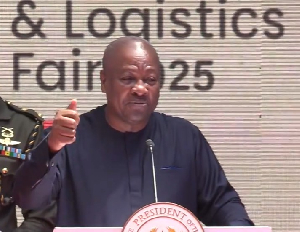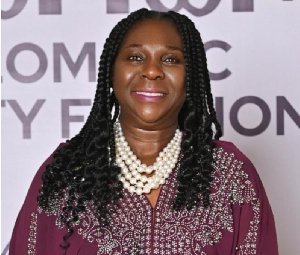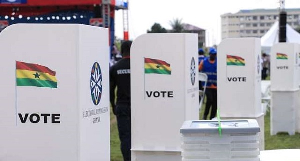Parliamentary Candidate (PC) for the Gushiegu Constituency in the ticket of the New Patriotic Party (NPP) Alhassan Tampuli has promised to connect more communities to the national grid should he be voted to power.
He promised to double the number of communities with access to electricity within a year if elected as Member of Parliament (MP) for the constituency at the December 7 polls.
Alhassan prior to his emergence as the Parliament Candidate had already supported some areas within the Gushiegu Constituency to get connected to the national grid. This was as far back as April, 2017.
Showing his commitment to make this one year Gushiegu electrification a reality, the politician has already supplied beneficiary communities with electricity poles.
Speaking to Samuel Eshun on Happy Morning Show aired on Happy 98.9FM and e.TV Ghana, Alhassan said, “The Gushiegu Constituency has about 400 plus communities but only 35 of them have access to electricity. This is regardless of the constituency being connected to the national grid in 1996”.
“I have made a commitment to the good people of Gushiegu that within a year, we should have the number doubling”.
Regardless of not having won the seat yet, Alhassan as selfless as he is, has his team already burying the poles for work to start.
He noted that his plan to provide the entire Gushiegu with electricity “is building on the work that the sitting MP, Ziblim Iddi, my uncle has done. He started the electrification project in 6 communities and I supported by getting them transformers. Now, we are in the final stages of getting them electricity”.
Rural communities are suffering from huge market failures as the national grids fall short of their demand for electricity. As of 2017, over 1 billion people worldwide lack household electric power – 14% of the global population.
Electrification typically begins in cities and towns and gradually extends to rural areas, however, this process often runs into obstacles in developing nations. Expanding the national grid is expensive and countries consistently lack the capital to grow their current infrastructure.
If countries are able to overcome these obstacles and reach nationwide electrification, rural communities will be able to reap considerable amounts of economic and social development.
Politics of Sunday, 1 November 2020
Source: happyghana.com
Gushiegu PC promises to double rural electrification within a year
Business

Malfunctioning AC, No Water: President Mahama bemoans poor state of World Trade Centre building
Entertainment










